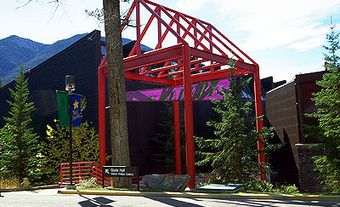Academic Freedom
Academic freedom commonly means the freedom of professors to teach, research and publish, to criticize and help determine the policies of their institutions, and to address public issues as citizens without fear of institutional penalties. Other meanings include the autonomy of the university in running its internal affairs, and the freedom of students to function within the academic programs they have chosen. The Canadian Association of University Teachers (CAUT) argues that "the common good depends upon the search for truth and its free exposition. Academic freedom is essential to these purposes." Demands for academic freedom in primary and secondary education have had little success.
In none of its meanings is academic freedom absolute. The freedom to teach, for example, is normally subject to approval of courses by academic bodies; the freedom to carry on research is often dependent on funding by universities or other groups. Hence academic freedom is generally linked to the idea of academic self-government, in the hope that limits will not be imposed arbitrarily and improperly.
Threats to Academic Freedom
Serious threats to academic freedom have come from those who hold the purse strings - wealthy benefactors, church bodies or provincial governments. Governing boards and academic administrators have transmitted such threats, the strongest being the loss of employment, to individuals, or have themselves originated threats. The alleged disloyalty of a professor to the president of an institution or to the ideals it was held to embody has been at the basis of several controversies. Threats to the freedom of professors have also come from colleagues or students unwilling to tolerate ideological or methodological diversity.
Notable Cases
Notable incidents in the history of academic freedom during the last century include George Workman's difficulties at Victoria University, Toronto, in 1891 and his dismissal from Wesleyan Theological College, Montréal, in 1907, in both cases because of his religious modernism. Salem Bland lost his teaching position at Wesley College, Winnipeg, in 1917, allegedly because some board members were hostile to his social radicalism. A similar charge was heard when John King Gordon lost his position at United Theological College, Montréal, in 1933. In both instances the need to reduce the college budget may have been more important.
Three senior professors were dismissed from the University of Saskatchewan in 1919 because they were held to be disloyal to the President. Three years later the firing of W.G. Smith, Wesley College's vice-principal, had much the same cause. The unsuccessful attempt to fire Frank Underhill from University of Toronto in 1941 resulted from hostility among board members to the historian's provocative and outspoken views about politics. The attempt failed on Underhill's behalf. Such pressure was hard to ignore in wartime; university autonomy has never been more fully compromised than during the Second World War.
CAUT's Involvement
The dismissal in 1958 of Harry Crowe from United College, Winnipeg, a case in which an individual's attitude to his institution loomed large, led CAUT (founded 1951) to address issues of academic freedom for the first time. Since 1959 CAUT's Academic Freedom and Tenure Committee has investigated and helped resolve many cases across Canada. None was more complicated than the summary dismissal of several social scientists from Simon Fraser University in 1969, rooted in a disagreement between them and the governing board as to how the university should be organized and run. CAUT's ultimate sanction, if negotiations fail, is to urge academics not to take employment at the censured institution.
Tenure
Silence on controversial subjects largely characterized the years before 1960. Since then, increasing freedom for professors has been due partly to the development of academic Tenure into tenure during good behaviour rather than during pleasure of the governing board, which is what several judgements in the first quarter of this century held it to be. Never was this more evident than in 1949, when the biochemist George Hunter was dismissed from the University of Alberta at very short notice for reasons that may have been political but were never made public.
Today, professors generally cannot be dismissed except for just cause, to be demonstrated before an impartial tribunal. Faculty unionization has tended to transform tenure into a seniority system; its relation to academic freedom is thus becoming less clear at a time when financial constraint is endangering that freedom in all its meanings. As well, recent attempts by some groups and at least one provincial government (Ontario) to suppress allegedly racist and sexist speech and research may inhibit academic freedom. In recent years the growing dependence of university research on corporate funding, notably in medicine and pharmacy, has raised the issue of academic freedom, as in the case of Nancy Olivieri at the University of Toronto and the Hospital for Sick Children in the 1990s.

 Share on Facebook
Share on Facebook Share on X
Share on X Share by Email
Share by Email Share on Google Classroom
Share on Google Classroom

